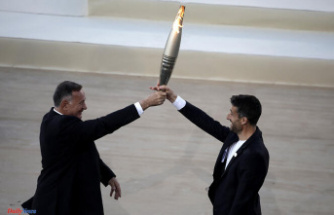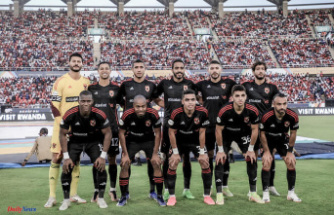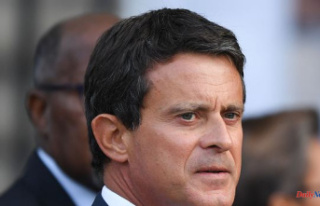Paul the octopus, Achille the cat, Nelly the elephant or even Alf the penguin have all tried their hand at least once, over the last decade, and with varying degrees of success, in the perilous exercise of forecasting a large international football competition. But there are also challengers apparently better equipped to this little game: financial institutions, accustomed to predictive models.
Thus, the famous American investment bank Goldman Sachs, by milling several statistics including the overall strength of the team (measured by the elo score), the advantage it can have at home or even the "tournament effect" (i.e. its ability to outperform during these events) simulated all the matches of Euro 2020, which begins on Friday June 11 with a year's delay due to the Covid-19 pandemic.
And little surprise, the big winner would be Belgium. The Red Devils would win the Grail against Italy, just over 30 years after being runners-up. Spain and Portugal would be the other two semi-finalists. France would not go beyond the 1/8th finals.
Euro 2020 by Goldman Sachs
Goldman Sachs
The Blues, however considered the favorites of the competition, do not appear in the last four. Goldman Sachs sees the team finishing behind Germany and Portugal in their pool. Drafted despite everything for the final stages, Karim Benzema's teammates would lose outright against the Netherlands. "While France - as world champions - have a high Elo score, the Blues are penalized in our model by a difficult group, a lack of home advantage and negative dynamics in the last games", note- she.
In detail, Belgium's chances of a final victory amount to 17.1%. It is four points better than the second, Spain. In this ranking, France is still fifth, with a 10.2% chance of lifting the cup. The differences between these percentages and the forecasts are then explained by the print run. Denmark could for example well appear in the tournament, failing to be able to really win it. Conversely, the bankers are giving cheap skin to Slovakia and Scotland, which simply have no chance of going all the way.
The chances of success of the teams involved in Euro 2020 according to Goldman Sachs. And their probability of passing each round.
Goldman Sachs
Obviously, the study has some biases. The Elo score is partly responsible for the happy outcome for Belgium, the first European nation (and the first nation for that matter) in this ranking. And individual statistics are irrelevant. Finally, the bank warns, and rightly so, not to attach too much importance to these calculations. "It is difficult to assess the degree of faith one should have in these predictions. Although we carefully capture the stochastic nature of the tournament [sa part de chance, NDLR], we also see that the predictions are very uncertain, even with sophisticated statistical techniques, simply because football is quite an unpredictable game. This is precisely why football is so exciting to watch."
Word of experts. Shortly before the 2018 World Cup, Goldman Sachs considered Brazil the most likely to win in Russia. France being "only" semi-finalist. Same prognosis for the 2014 World Cup, during which Brazil was crushed by the future German winner seven goals to one. Goldman Sachs was a little closer to the goal for Euro 2016, seeing France win. It may have been played at an outgoing post...












